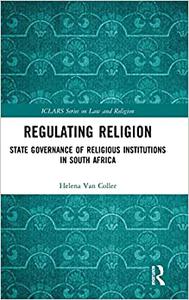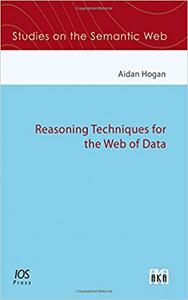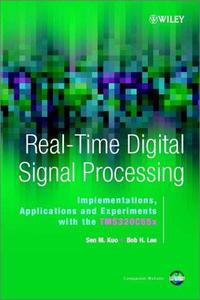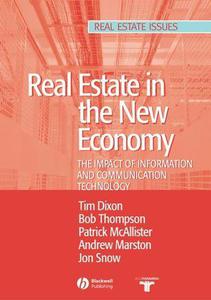
Salman Ansari, "Rettet die Neugier!: Gegen die Akademisierung der Kindheit"
Deutsch | 2013 | ISBN: 3810501921 | EPUB | pages: 63 | 5.6 mb
Salman Ansari streitet für kindliche Freiräume und gegen die Bildungshysterie

Ph.D. Prasad S. Thenkabail, "Remote Sensing Handbook: Remote Sensing of Water Resources, Disasters, and Urban Studies"
English | 2015 | pages: 679 | ISBN: 1482217910, 0367868962 | PDF | 409,5 mb
A volume in the three-volume Remote Sensing Handbook series, Remote Sensing of Water Resources, Disasters, and Urban Studies documents the scientific and methodological advances that have taken place during the last 50 years. The other two volumes in the series are Remotely Sensed Data Characterization, Classification, and Accuracies, and Land Resources Monitoring, Modeling, and Mapping with Remote Sensing.

Saba Mahmood, "Religious Difference in a Secular Age: A Minority Report"
English | 2015 | pages: 248 | ISBN: 0691153280 | PDF | 22,1 mb
How secular governance in the Middle East is making life worse―not better―for religious minorities

Relativistic Quantum Chemistry: The Fundamental Theory of Molecular Science By Prof. Dr. Markus Reiher, Dr. Alexander Wolf(auth.)
2009 | 689 Pages | ISBN: 3527312927 | PDF | 7 MB
Written by two researchers in the field, this book is a reference to explain the principles and fundamentals in a self-contained, complete and consistent way. Much attention is paid to the didactical value, with the chapters interconnected and based on each other. From the contents: * Fundamentals * Relativistic Theory of a Free Electron: Diracs Equation * Dirac Theory of a Single Electron in a Central Potential * Many-Electron Theory I: Quantum Electrodynamics * Many-Electron Theory II: Dirac-Hartree-Fock Theory * Elimination of the Small Component * Unitary Transformation Schemes * Relativistic Density Functional Theory * Physical Observables and Molecular Properties * Interpretive Approach to Relativistic Quantum Chemistry From beginning to end, the authors deduce all the concepts and rules, such that readers are able to understand the fundamentals and principles behind the theory. Essential reading for theoretical chemists and physicists.Content: Chapter 1 Introduction (pages 1-8): Chapter 2 Elements of Classical Mechanics and Electrodynamics (pages 9-50): Chapter 3 Concepts of Special Relativity (pages 51-112): Chapter 4 Basics of Quantum Mechanics (pages 113-150): Chapter 5 Relativistic Theory of the Electron (pages 151-182): Chapter 6 The Dirac Hydrogen Atom (pages 183-224): Chapter 7 Quantum Electrodynamics (pages 227-238): Chapter 8 First?Quantized Dirac?Based Many?Electron Theory (pages 239-313): Chapter 9 Many?Electron Atoms (pages 315-383): Chapter 10 General Molecules and Molecular Aggregates (pages 385-412): Chapter 11 Decoupling the Negative?Energy States (pages 413-446): Chapter 12 Douglas-Kroll-Hess Theory (pages 447-478): Chapter 13 Elimination Techniques (pages 479-501): Chapter 14 Special Computational Techniques (pages 503-515): Chapter 15 External Electromagnetic Fields and Molecular Properties (pages 517-554): Chapter 16 Relativistic Effects in Chemistry (pages 555-579):

Regulation of Functional Foods and Nutraceuticals: A Global Perspective By
2005 | 417 Pages | ISBN: 0813811775 | PDF | 6 MB
Regulation of Functional Foods and Nutraceuticals: A Global Perspective offers a comprehensive resource for information on regulatory aspects of the growing and economically important functional food industry. Regulatory systems and definitions of key terms-food, supplement, drug, etc-vary from country to country. A thorough understanding of laws and regulation within and among key countries with regard to functional foods, herbal extracts or drugs, and nutritional supplements is critical to the direction of food companies that are developing products for these markets.International experts with legal and/or scientific expertise address relevant topics from quality issues, to organic foods to labeling. Innovative product development within the framework of existing regulations will be addressed in individual chapters. Overview chapters will discuss global principles, inter-country trading issues, and present a comparison of the laws and regulations within different countries graphically.A "must-have" handbook for research professionals, management, and marketing strategists in the worldwide functional foods/nutritional supplements business. Food technicians and engineers responsible for manufacturing quality in this industry should add it to their library to ensure that they have a thorough knowledge of the applicable legal requirements. The book will also serve as an indispensable shelf reference for lawyers in the food industry and government health professionals with regulatory responsibilities.Content: Chapter 1 The Impact of Regulations on the Business of Nutraceuticals in the United States: Yesterday, Today, and Tomorrow (pages 1-36): Kathie L. WrickChapter 2 The Regulatory Context for the Use of Health Claims and the Marketing of Functional Foods: Global Principles (pages 37-54): Michael HeasmanChapter 3 Regulation of Quality and Quality Issues Worldwide (pages 55-68): Joy JosephChapter 4 Organic Food Regulations: Part Art, Part Science (pages 69-78): Kathleen A. MerriganChapter 5 Health Claims: A U.S. Perspective (pages 79-88): Victor FulgoniChapter 6 Food and Drug Administration Regulation of Dietary Supplements (pages 89-100): Stephen H. McnamaraChapter 7 Tropicana Pure Premium and the Potassium Health Claim: A Case Study (pages 101-108): Carla McGillChapter 8 The Importance of the Court Decision in Pearson v. Shalala to the Marketing of Conventional Food and Dietary Supplements in the United States (pages 109-135): Elizabeth Martell Walsh, Erika King Lietzan and Peter Barton HuttChapter 9 Dietary Supplements and Drug Constituents: the Pharmanex v. Shalala Case and Implications for the Pharmaceutical and Dietary Supplement Industries (pages 137-148): Daniel A. Kracov, Paul D. Rubin and Lisa M. DwyerChapter 10 The Role of the Federal Trade Commission in the Marketing of "Functional Foods" (pages 149-168): Lesley FairChapter 11 Functional Foods: Regulatory and Marketing Developments in the United States (pages 169-199): Ilene Ringel HellerChapter 12 The Nutraceutical Health Sector: A Point of View (pages 201-212): Stephen L. DeFeliceChapter 13 Regulatory Issues Related to Functional Foods and Natural Health Products in Canada (pages 213-226): Kelley FitzpatrickChapter 14 The Regulation of Functional Foods and Nutraceuticals in the European Union (pages 227-245): Peter Berry OttawayChapter 15 Functional Foods in Japan: Foshu ("foods for Specified Health Uses") and "foods with Nutrient Function Claims" (pages 247-261): Ron BaileyChapter 16 Chinese Health (Functional) Food Regulations (pages 263-291): Guangwei Huang and Karen LapsleyChapter 17 Report of ILSI Southeast Asia Region Coordinated Survey of Functional Foods in Asia (pages 293-302): E?Siong TeeChapter 18 Germany and Sweden: Regulation of Functional Foods and Herbal Products (pages 303-319): Joerg Gruenwald and Birgit WobstChapter 19 Functional Foods:Australia/New Zealand (pages 321-335): Jane L. Allen, Peter J. Abbott, Sue L. Campion, Janine L. Lewis and Marion J. HealyChapter 20 Regulation of Functional Foods in Spain (pages 337-366): Luis Garcia?Diz and Jose Luis Sierra CinosChapter 21 Functional Food Legislation in Brazil (pages 367-376): Franco M. LajoloChapter 22 Codex and its Competitors: The Future of the Global Regulatory and Trading Regime for Food and Agricultural Products (pages 377-388): Mark Mansour

Helena Van Coller, "Regulating Religion: State Governance of Religious Institutions in South Africa "
English | ISBN: 1138298719 | 2019 | 234 pages | PDF | 9 MB
This book focuses on government regulation of religious institutions in South Africa. PART 1 explains the meaning of government regulation for religious communities by providing a brief overview of the relationship between church and state, the right to freedom of religion and the legal status of religious organisations. With reference to case examples, this section highlights the importance of religious autonomy and the right to self-determination of religious institutions and non-interference by the state in the internal affairs of the organisation. No fundamental rights are however absolute and the section concludes with a discussion on the limitation of rights and an overview of the relevant constitutional provisions and anti-discrimination laws in place relevant to religious organisations, in the context of equality and non-discrimination. PART 2 discusses in more detail the daily rights, responsibilities and freedoms associated with the right to freedom of religion within some specific spheres of society where regulation of religion has occurred or are necessary or has proved to be problematic. It includes those related to the role of religion in society; the relations between religion and state institutions; education; finance; family matters; employment law; planning law; broadcast media and general governance issues.

Regional Nerve Blocks and Infiltration Therapy: Textbook and Color Atlas, 3rd Edition, Fully Revised and Expanded By
2004 | 433 Pages | ISBN: 1405122633 | PDF | 61 MB
New to the third edition:new - regional anaesthesia in ophthalmic surgery new - intravenous regional anaesthesia new - percutaneous epidural neuroplasty a new block for the trigeminal nerve extended coverage of the brachial plexus block and infraclavicular block new - therapy for tennis elbow and for carpal tunnel syndrome new - intra-ganglion injection therapy for muscular piriform syndrome new - latest developments in neuroaxial blockade 40% bigger than the last editionRegional nerve blocks are important procedures in anaesthesia and pain therapy that can be employed rapidly and safely by a skilled practitioner. The book contains precise anatomical drawings and illustrations in full-colour throughout, and also provides detailed instructions on how to apply local anaesthesia. Practically oriented, the book could almost be taken to the operating room and used as a guide. It covers anatomy, indications, contraindications, dosages, explanations of individual drugs, as well as complications, caveats, and potential adverse side effects, and how to avoid them or treat them.Each procedure is explained step-by-step using numerous full-colour illustrations and photographs. Every block has a photograph showing the entry site accompanied by an anatomical diagram showing the needle track. For each procedure, a specific form (record and checklist) is provided for recording the individual treatment steps. The author presents both familiar and new therapeutic techniques for both the treatment of pain and regional nerve blocks during surgery. In addition, the most recent local anaesthetics and additives are discussed, with particular reference to the relevant indications and dosages.Visit http://www.abw-verlag.com/titel_details.php?42 for information about this book in German.Content: Chapter 1 Regional Nerve Blocks and Infiltration Therapy in Clinical Practice (pages 1-15): Chapter 2 Regional Anesthesia in Ophthalmology (pages 18-29): Andre van Zundert and Danilo JankovicChapter 3 Occipital Nerves (pages 30-32): Chapter 4 Trigeminal Nerve (pages 33-54): Chapter 5 Infiltration of Trigger Points in the Muscles of Mastication (pages 55-58): Chapter 6 Cervicothoracic Ganglion (Stellate Ganglion) (pages 59-68): Chapter 7 Superior Cervical Ganglion (pages 69-75): Chapter 8 Deep (and Superficial) Cervical Plexus (pages 76-81): Chapter 9 Brachial Plexus (pages 82-122): Chapter 10 Suprascapular Nerve (pages 124-127): Chapter 11 Subscapular Nerve Blocks Infiltration of Subscapular Muscle Trigger Points ("Frozen Shoulder") (pages 128-132): Chapter 12 Rotator Cuff Muscles Injection Techniques in the Myofascial Trigger Points (pages 133-137): Chapter 13 Shoulder Region: Intra?Articular Injections (pages 138-140): Chapter 14 Peripheral Nerve Blocks in the Elbow Region (pages 142-145): Chapter 15 Peripheral Nerve Blocks in the Wrist Region (pages 146-148): Chapter 16 Elbow and Wrist Infiltration of Myofascial Trigger Points and Intra?Articular Injections (pages 149-158): Chapter 17 Intravenous Regional Anesthesia (IVRA) (pages 159-163): Chapter 18 Intravenous Sympathetic Block with Guanethidine (Ismelin®) (pages 164-168): Chapter 19 Thoracic Spinal Nerve Blocks (pages 170-185): Chapter 20 Lumbar Paravertebral Somatic Nerve Block (pages 186-190): Chapter 21 Lumbar Sympathetic Block (pages 191-198): Chapter 22 Celiac Plexus Block (pages 199-205): Chapter 23 Lliolumbosacral Ligaments (pages 206-209): Chapter 24 Ganglion Impar (Walther Ganglion) Block (pages 210-213): Chapter 25 Infiltration of the Piriform Trigger Points ("Piriform Syndrome") (pages 214-216): Chapter 26 Inguinal Femoral Paravascular Block ("Three?in?One" Block) (pages 220-225): Chapter 27 Psoas Compartment Block (Cheyen Approach) (pages 226-229): Chapter 28 Sciatic Nerve Block (pages 230-237): Chapter 29 Femoral Nerve (pages 238-240): Chapter 30 Lateral Femoral Cutaneous Nerve (pages 241-242): Chapter 31 Obturator Nerve (pages 243-245): Chapter 32 Ilioinguinal and Iliohypogastric Nerves (pages 246-247): Chapter 33 Blocking Peripheral Nerves in the Knee Joint Region (pages 248-253): Chapter 34 Blocking Peripheral Nerves in the Ankle Joint Region (pages 254-259): Chapter 35 Neuraxial Anatomy (pages 262-271): Chapter 36 Spinal Anesthesia (pages 272-284): Chapter 37 Complications of Spinal Anesthesia (pages 285-292): Chapter 38 Continuous Spinal Anesthesia (CSA) (pages 293-298): Chapter 39 Continuous Spinal Anesthesia (CSA) in Obstetrics (pages 299-300): Chapter 40 Chemical Intraspinal Neurolysis with Phenol in Glycerol (pages 301-304): Chapter 41 Lumbar Epidural Anesthesia (pages 305-326): Chapter 42 Thoracic Epidural Anesthesia (pages 327-332): Chapter 43 Epidural Anesthesia in Obstetrics (pages 333-340): Chapter 44 Lumbar Epidural Anesthesia in Children (pages 341-345): Chapter 45 Epidural Steroid Injection (pages 346-354): Chapter 46 Combined Spinal and Epidural Anesthesia (CSE) (pages 355-360): Chapter 47 Caudal Anesthesia in Adult Patients (pages 361-375): Chapter 48 Caudal Anesthesia in Children (pages 376-380): Chapter 49 Percutaneous Epidural Neuroplasty (pages 381-390): James E. Heavner, Gabor B. Racz, Miles Day and Rinoo ShahChapter 50 Adjuncts to Local Anesthesia in Neuraxial Blocks (pages 391-396):

Reasoning Techniques for the Web of Data by A. Hogan
English | 2014 | ISBN: 1614993823 | 344 Pages | PDF | 7.3 MB
Linked Data publishing has brought about a novel Web of dаta: a wealth of diverse, interlinked, structured data published on the Web.

Real Time Digital Signal Processing: Implementations, Applications and Experiments with the TMS320C55X By Sen M Kuo, Bob H Lee(auth.)
2001 | 503 Pages | ISBN: 0470841370 | PDF | 4 MB
The rapid advancement in digital technology in recent years has allowed the implementation of incredibly sophisticated digital signal processing (DSP) algorithms that make real-time tasks feasible. Real-time DSP is currently a very hot subject in today's engineering fields fuelled by the ever-increasing demand for high-performance digital signal processors. The TMS320C55x is the latest of Texas Instrument's line of highly successful DSP chips, which is anticipated to dominate the market in 2001. Placing emphasis on the practical aspects of real time DSP concepts and applications by taking a systems design, implementation and simulation approach, this text bridges the gap in the existing DSP literature which covers theory, MATLAB and C and Lab manuals. A hands-on, tutorial approach enables the understanding of real-time DSP systems principles and real-world applications using MATLAB, C and various assembly programs based on TI's TMS320C55x. * Tutorial based presentation, allowing the reader to master the theory of digital signal processing and the important skill of real-time DSP design and implementation techniques. * Focuses on practical aspects of real-time DSP concepts and applications from a system design and implementation point of view * Accompanying CD-ROM containing MATLAB and C assembly programs will allow a hands-on illustration of real-time DSP application * For readers with access to a TI DSP lab, an Evaluation Module (EVM) with Code Compressor Studio (CCS) of TMS320C55x will be integrated into lab experiments, projects and applications from in-text references A valuable, leading edge resource for senior graduate students of digital signal processing and practising engineers developing real-time DSP applications. Content: Chapter 1 Introduction to Real?Time Digital Signal Processing (pages 1-34): Chapter 2 Introduction to TMS320C55x Digital Signal Processor (pages 35-76): Chapter 3 DSP Fundamentals and Implementation Considerations (pages 77-126): Chapter 4 Frequency Analysis (pages 127-180): Chapter 5 Design and Implementation of FIR Filters (pages 181-240): Chapter 6 Design and Implementation of IIR Filters (pages 241-302): Chapter 7 Fast Fourier Transform and Its Applications (pages 303-350): Chapter 8 Adaptive Filtering (pages 351-398): Chapter 9 Practical DSP Applications in Communications (pages 399-444):

Real Estate & the New Economy: The Impact of Information and Communications Technology By Timothy Dixon, Bob Thompson, Patrick McAllister, Andrew Marston, Jon Snow(auth.)
2005 | 429 Pages | ISBN: 1405117788 | PDF | 3 MB
Private sector commercial property represents some ?400 bn, or 34% of total UK business assets and is a vital fabric for housing commercial enterprise. Yet social and economic forces for change, linked with new technology, are making owners and occupiers question the very nature and purpose of property and real estate. Printing, steam power; canals and railroads; mass media and, more recently, information and communications technology (ICT) have brought about major changes in both organisational and economic structures over the centuries. On the one hand, there has been much hype about the role that ICT would play in eliminating the need for physical real estate space; and on the other, some have suggested that institutional factors and fixed costs mitigate against transformative change in real estate. Building on the authors' own research and a growing body of new, international findings in the field, the book provides a balanced view between these two positions. It will demonstrate how ICT affects the shape and form of real estate in our towns and cities, with other forces in the new economy.The book: examines how ICT and organisational change, combined with social, political and economic factors, affects real estate space demand analyses how real estate strategies are changing to reflect these trends shows how technology affects the geography and space of real estate and infrastructure in our towns and cities investigates future urban shape and form.Content: Chapter 1 Introduction (pages 1-39): Chapter 2 The Social, Economic and Political Context of ICT Transformation (pages 43-83): Chapter 3 Technological Change: Diffusion and Adoption of ICT by Consumers, Businesses and Government (pages 84-127): Chapter 4 Business Process and Organisational Change (pages 128-159): Chapter 5 The New Economy and Real Estate (pages 160-196): Chapter 6 Real Estate Spaces (pages 199-225): Chapter 7 Real Estate Use and ICT (pages 226-278): Chapter 8 Real Estate Service Providers and ICT (pages 279-328): Chapter 9 New Directions and Policy Implications: The Future of Real Estate in the New Economy (pages 331-371):


